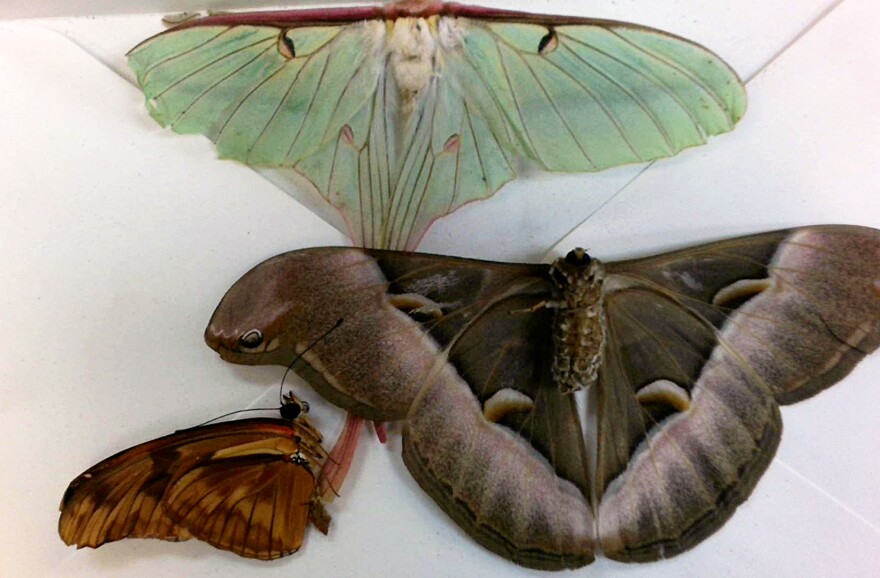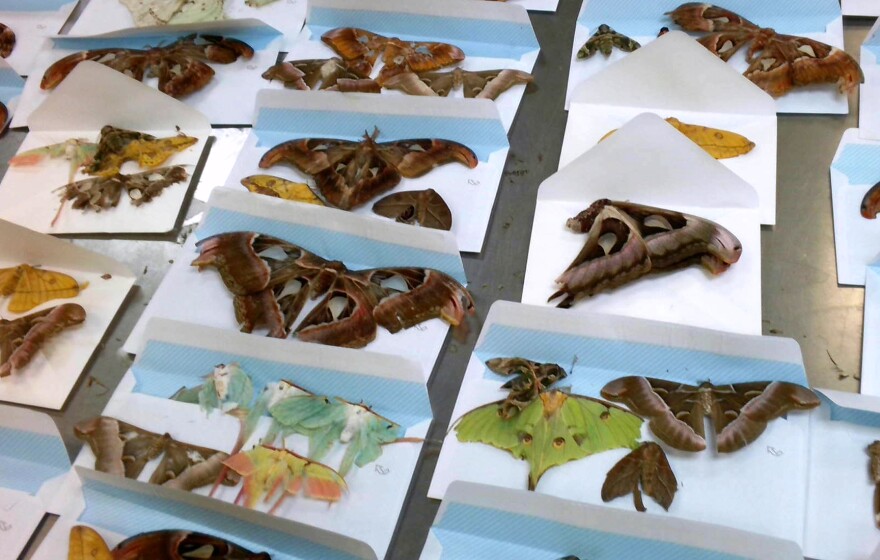PHILADELPHIA — A package of 60 dead adult moth and butterfly specimens from Portugal headed for the Poconos was intercepted earlier this month by federal officials.
Agriculture specialists with the U.S. Customs and Border Protection detained the parcel in Philadelphia, manifested as “pieces of silk to be used in works,” on May 2, reporting it to inspectors with the U.S. Fish and Wildlife Service and turning the specimens over to them the next day, according to a news release from the agency.

Agents discovered the shipment after it arrived by air cargo at Philadelphia International Airport, said U.S. Customs and Border Protection spokesman Steve Sapp.
The dead moths and butterflies, all of the order Lepidoptera, were headed to an address in Wayne County, north of the Lehigh Valley at the borders of New York and New Jersey. The parcel contained dried out pupal cases and over 60 envelopes containing the specimens.
“Customs and Border Protection agriculture specialists have a very challenging and critical mission, and that is to protect our vital agricultural resources against the accidental or deliberate introduction of invasive insect pests, and plant and animal diseases that could harm our nation’s economic vitality."Tater Ortiz, U.S. Customs and Border Protection area port director for the Area Port of Philadelphia
“Customs and Border Protection agriculture specialists have a very challenging and critical mission, and that is to protect our vital agricultural resources against the accidental or deliberate introduction of invasive insect pests, and plant and animal diseases that could harm our nation’s economic vitality,” said Tater Ortiz, the agency’s area port director for the Area Port of Philadelphia.
The federal Fish and Wildlife Service regulates the importation of wildlife, including dead specimens.
“Importers must be licensed and declare imports to USFWS,” according to the release. “The parcel did not contain import certifications, invoices, or other documentation that would have declared the scientific species names or the purpose for this shipment.”
During a typical day, U.S. Customs agriculture specialists across the U.S. seize 2,677 prohibited plant, meat, animal byproducts, and soil, as well as intercept 240 insect pests at U.S. ports of entry.


